Microsoft has everything it needs to succeed with consumers, except follow-through
A litany of canceled products and a CEO's admission of abandoning consumers presents little hope that Microsoft could ever thrive in the consumer space.
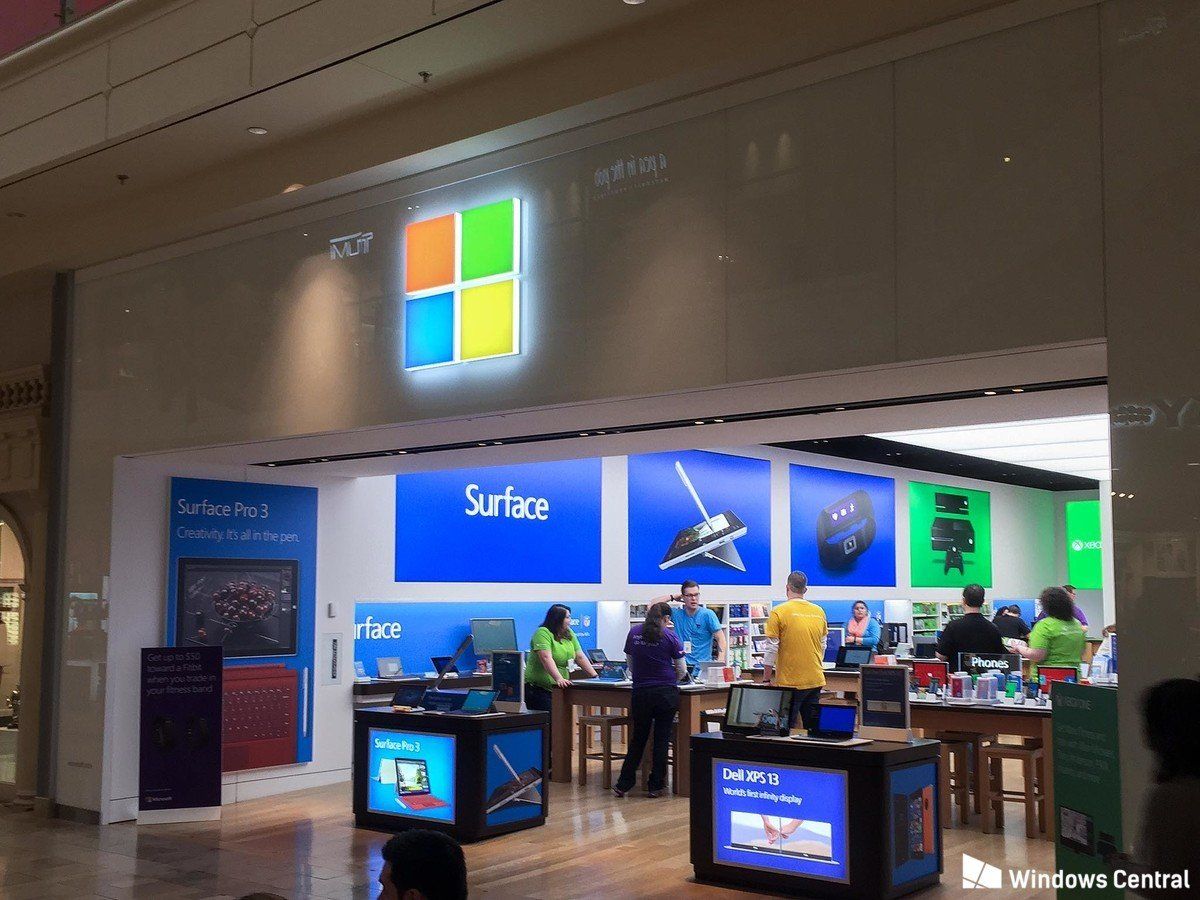
The contrasting irony to Microsoft's history of failed consumer products is that the company has virtually everything it needs to succeed in the consumer space.
A baker can have a killer cake recipe, but without follow-through, the recipe is nothing more than an unfulfilled plan and promising idea. He may possess and may even proceed to mix the required ingredients in precise accordance with the recipe. He may pour that perfect mixture into an appropriately greased cake dish and may have also preheated the oven to the correct temperature for the exact length of time the recipe requires. But if he fails to follow through putting that pan into the oven, nothing more will come of it. He will forever possess a mixture that has the potential to become a cake.
Microsoft has created a promising mixture of consumer technology throughout its history. Sadly, the company doesn't seem to have the fire for the consumer space its rivals have. Consequently, the company appears to be in a perpetual cycle of talking about its recipes, letting us taste the batter but never applying the heat to make the products a consumer success. For companies to succeed in the consumer space, they must often be innovative, require massive financial resources for marketing, broad distribution channels and partnerships, and a strong and recognized brand. Microsoft has all of this; what it lacks is follow-through.
Microsoft CEO admits repeatedly abandoning consumers was a mistake
Microsoft is innovative
Windows 10 Fall Creators Update expands the Mixed Reality platform to span immersive VR and AR holograms.
Microsoft is a company with a history of pushing boundaries and making early investments in tech before it becomes "conventional wisdom." CEO Satya Nadella made this point in a recent GeekWire interview.
Things look like failures until they're not. They're very binary transitions because of these network effects in technology, so you have to be able to see things that are changing long before they are conventional wisdom. Take bets and then go after them in a strong way.
He admitted the company's investments in AI and mixed reality began under the tenure of his predecessors. Thus, Microsoft's 2015 introduction of its Mixed Reality strategy via the hardware, HoloLens, and platform, Windows Mixed Reality, was based on years of previous investment.
Get the Windows Central Newsletter
All the latest news, reviews, and guides for Windows and Xbox diehards.
Until recently, the tech media has been more enamored with HoloLens than the holographic computing platform play Microsoft began executing in 2015. Sadly, Microsoft has been equally reserved with its messaging about holographic computing which will potentially affect the consumer and enterprise spaces. Windows Holographic API's are part of Windows 10, but relatively few developers have created WIndows holographic apps. Now with Apple's and Google's smartphone-focused ARKit and ARCore respectively, the stories around Microsoft's AR efforts are more often than not, about how they will be overshadowed by the competition in the consumer space.
Even without a consumer-focused HoloLens, Microsoft must market AR sooner than later
Far too often Microsoft sleeps its lead away
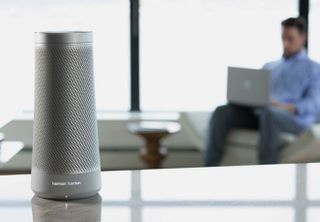
This is a familiar story. Microsoft was present on tablets and smartphones long before Apple and Google entered the fray. The current state of mobile doesn't reflect that head start, however. AI, machine learning, natural language procession and deep neural networks are also areas Microsoft has a strong history.
But other digital assistants built on that, and similar tech have established mindshare in the consumer space that Microsoft, even with 500 million Cortana-equipped Window 10 PCs is still struggling to achieve.
Amazon's Alexa, Google Home, Apple's Siri and Samsung's Bixby's (with its leap to consumer appliances via Viv technology) will all likely overshadow Microsoft's Cortana in the consumer space long into the future. The Cortana-powered Harmon Kardon Invoke speaker follows Microsoft's Johnny-come-lately tradition which brought Cortana to smartphones after Siri and Google Now were established and familiar stalwarts on mobile.
Bill Gate's and Steve Ballmer paved the way for Nadella's AI and bots
Marketing, marketing, marketing
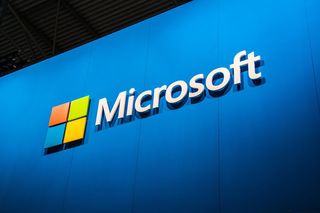
As a company valued in the hundreds of billions of dollars, Microsoft has enough capital to push any of its consumer efforts for the long haul. Consistent Windows 10 television ads are encouraging evidence that Microsoft can commit to aggressive marketing akin to what rivals Apple and Samsung execute. The company is more espoused to a marketing strategy that leans on marketing one product via the use of another per Corporate Marketing Officer Chris Capossela, however.
[Marketing] dollars spent around engagement can be effective, but .... product design is far more effective at getting people to be deeply engaged in your products. So... using our amazing innovation engineering resource pool to actually build marketing into our products... so that when you use one of our products it naturally leads you to use another one of our products.
Capossela acknowledges that as one of the world's most recognized brands focusing marketing dollars on acquiring customers is not Microsoft's strategy. He supported this argument with the fact that a simple announcement of the availability of Office for iOS and Android resulted in millions of downloads. That works for a known Microsoft branded product, but what about less visible products like Windows phones, HoloLens and augmented reality (AR) or Mixed Reality headsets?
Even without consumer-focused HoloLens, Microsoft must market AR sooner than later
With Mixed Reality is Microsoft changing its ways?
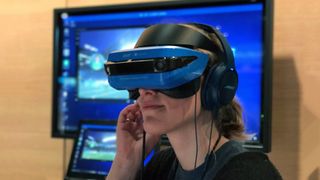
Under the leadership of Elizabeth Hamren, Microsoft has invested in an aggressive marketing strategy to promote its partners Mixed Reality headsets, and the company's mixed reality vision. It will be interesting to see just how aggressive and persistent these marketing efforts will be given Microsoft's history.
Will Microsoft have the stamina to push the products and technology long enough to establish mindshare and demand? Or will it abandon its efforts if results are not as immediate as desired? Sadly, Nadella has confessed to abandoning committed customers to pursue "the new shiny object." Let's hope nothing shines brighter than the still unproven area of Mixed Reality.
Fortunately, Microsoft has the partnership infrastructure to help it succeed. Though different products, like smartphones via carriers, face different distribution challenges, phone hardware requirements, lateness to the consumer space and limited marketing support contributed to Microsoft's failure in phones. Hopefully, Microsoft has learned from its mistakes.
So busy providing tools, Microsoft isn't using its resources
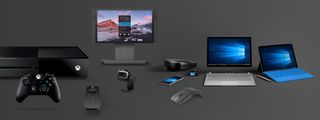
Ambient computing among consumers supported by AI, IoT and smart appliances are the future and Microsoft is virtually absent in that space. The company has failed to apply the required drive to consumer-facing products to establish its brand.
Microsoft's vision to provide the tools others use to create technology may be a double-edged sword severing it from the consumer market. Because the company's focus is "being a platform" it invests insufficient resources in its consumer products.
Sadly the company repeatedly steps into a consumer space with great products that excite core users, like Zune and Groove for music, Microsoft Band for wearables and Windows phone for mobile, but ultimately fails to deliver marketing to truly hit the mainstream. Those who embrace Microsoft products often love them. Microsoft doesn't have the fire, focus or passion for making these products more than a great mix of technology for a niche market, however. As insufficiently supported products they eventually die as self-fulfilling prophecies that achieved little consumer notoriety.
Microsoft can succeed with enterprise and consumers.
Rather than a hyper-focus on providing the tools others use to create technology, Microsoft should lead by example through demonstrating its use of its resources to develop, position, market and deliver on excellent consumer technology.
Microsoft has what it takes to be the platform company it strives to be and the consumer company it needs to be if it would only follow-through.
Jason L Ward is a columnist at Windows Central. He provides unique big picture analysis of the complex world of Microsoft. Jason takes the small clues and gives you an insightful big picture perspective through storytelling that you won't find *anywhere* else. Seriously, this dude thinks outside the box. Follow him on Twitter at @JLTechWord. He's doing the "write" thing!
